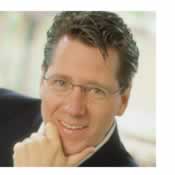Tom and Wendy were the typical newly married couple. In their mid-20s, they had dated for nearly two years before getting engaged. They had the blessing of their parents, attended premarital counseling, and were on their way to living happily ever after — or so everyone thought. But marriage for Tom and Wendy, like the majority of newlyweds, wasn’t all they hoped for. Each of them, for different reasons, felt let down. Unlike the majority of couples, however, Tom and Wendy talked openly about their feelings. Their expectations of marriage were not being met, and they were determined to do something about it.
So on a cold January day four months after their wedding, Tom and Wendy asked for help. Bundled up against the cold, they came into our office and began to shed their coats. As Wendy sipped hot coffee to thaw out, she said, “We have talked to friends and family about what is going on, but we both decided we need more objectivity.”
Tom joined in: “Yeah, everybody who knows us just says ‘Give it time’ or something like that.” Tom went on to say that their marriage was not on the rocks and no major overhaul was needed. “I just think we need a little realignment,” he said.
We met with him and Wendy for nearly an hour, listening to their experiences. We gave them several exercises to help them explore their misconceptions of marriage and then recommended a few resources. Then we introduced the idea of linking up with a marriage mentor couple.
“What’s that?” Wendy asked.
We told them how meeting from time to time with a seasoned married couple could give them a sounding board and a safe place to explore some of their questions about marriage. Like most newly married couples we talked to, Tom and Wendy were very eager to find such a couple. After a bit of discussion, they suggested a married couple in their church.
Neither of them knew this other couple very well, but they respected their marriage from afar and thought they would fit the bill. After a few phone calls and a little more exploration, we made the connection for Tom and Wendy. Over the course of several months, they met three times with their mentors, Nate and Sharon.
Tom and Wendy have been married for more than five years now. They are madly in love and happier than they ever imagined. Here is a portion of a letter they recently sent us:
Dear Les and Leslie,
How can we ever thank you for helping us find a marriage mentor couple? Our mentoring relationship with Nate and Sharon ended up being the most important thing we have ever done to build up our marriage. It was nice to have another couple know what we were going through and remain objective at the same time.
Someday we hope to give back the gift that Nate and Sharon gave to us by mentoring some newly married couples. We think every couple just starting out should have a mentor.
That’s not a bad idea. Throughout human history mentoring has been the primary means of passing on knowledge and skills. In the Greek epic The Odyssey, the hero Odysseus had an elderly friend and adviser named Mentor. Before Odysseus went to fight in the Trojan War, he made Mentor the guardian of his son, Telemachus. The Bible is also filled with examples of mentoring (Eli and Samuel, Elijah and Elisha, Moses and Joshua, Naomi and Ruth, Elizabeth and Mary, Barnabas and Paul, Paul and Timothy).
Today, we have a dream that a network of mentors will rise up to become guardians of the next generation of marriages.
But mentoring is in short supply these days. In our modern age, the learning process has shifted. It now relies primarily on computers, classrooms, books and videos. In most cases today the relational connection between the knowledgeable and experienced giver and the receiver of that wisdom has weakened or is nonexistent — especially in the early years of marriage.
What Is a Marriage Mentor?
“What I need is someone to talk to who has walked down the path I’m just beginning,” said Lisa a few weeks into her new marriage. “Whenever I go to my mom or dad with a situation, they end up being a parent or teaching me something I don’t really need to learn.”
While a mother and father can certainly serve a helpful function in the life of a new bride or groom, they usually cannot offer the distance and objectivity that a mentor gives. For this reason, it is important first to realize exactly what a mentor is not:
A mentor is not a mother or father.
A mentor is not a friend
A mentor is not “on call” for every little crisis.
A mentor is not a know-it-all.
A mentor is not committed long-term
In addition, the relationship between a mentor couple and newlyweds has a natural cycle of its own, which is not always predictable. Each mentoring relationship takes on its own style and personality. The number of time couples spend together and the content they discuss can rarely be prescribed.
However, we recommend a minimum of three meetings throughout the newlyweds’ first year together: at three months, seven months, and one year after the wedding. These times provide the basic structure upon which additional meetings, meals and phone calls can rest.
The Boomerang Effect
An interesting aspect about marriage mentoring is that it can actually help the mentor couple.
“I don’t know how much we helped Doug and Sarah,” Joan told us, “but we sure got a lot out of it.” Joan laughed as she was telling us about being a marriage mentor couple along with Larry, her husband of 18 years.
“Helping a young couple seemed to spark a lot of things in our own marriage that we had neglected,” Larry added.
Something wonderful happens when a more mature couple reaches out to a new couple. We call it the boomerang effect. By helping another couple form and live out their dreams, one’s own dreams for marriage are reawakened and fulfilled.
Once you take the time to listen to a questioning couple, your own “answers” become clearer. You will also be refreshed by this relationship. Almost by osmosis, the vim and vigor for marriage that a new couple enjoys will begin to rub off on you. Simply being around their energetic spirits will revive and rejuvenate your marriage. There is also an overwhelming sense of having done good, of helping a new couple build a love that will last a lifetime.
How You Can Become a Mentor
Contact your pastor about how you can serve as a mentoring couple in your local congregation.
Volunteer to begin a marriage mentoring program that would augment the existing ministry to young couples in your church.
Write to the Parrotts about receiving information on beginning a mentoring program:
Drs. Les and Leslie Parrott Center for Relationship Development Seattle Pacific University Seattle, WA 98119
Information is available on recruiting, selecting and training marriage mentors.
Pray that God would direct you in ministering to engaged and newly married couples.
Copyright © 1996 Les & Leslie Parrott. All rights reserved. International copyright secured. Used with permission.
Les and Leslie Parrott have coordinated 300 mentor couples in the Seattle area. They are co-directors of the Center for Relationship Development at Seattle Pacific University. This article appeared in Focus on the Family magazine.
Read more from Les & Leslie at RealRelationships.com.


 Les Parrott III, Ph.D., is founder of RealRelationships.com and a Professor of Psychology at Seattle Pacific University. He is also co-creator, with his wife Leslie, of eHarmony Marriage. Les is an award-winning author of more than a dozen best-selling books including High-Maintenance Relationships, The Control Freak, 3 Seconds, Becoming Soul Mates, Your Time Starved Marriage and Saving Your Marriage Before It Starts.
Les Parrott III, Ph.D., is founder of RealRelationships.com and a Professor of Psychology at Seattle Pacific University. He is also co-creator, with his wife Leslie, of eHarmony Marriage. Les is an award-winning author of more than a dozen best-selling books including High-Maintenance Relationships, The Control Freak, 3 Seconds, Becoming Soul Mates, Your Time Starved Marriage and Saving Your Marriage Before It Starts.








